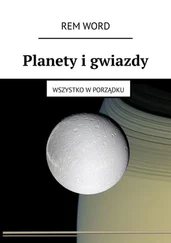It’s tempting to liken the pre-signing children to pre-language homo sapiens thousands of years ago. Was the moment when a group of Nicaraguan children began to form their own sign language similar to a time long ago when a family group of early humans — perhaps sitting round a fire at night — began to share stories with each other using signs which followed an agreed pattern? Judy Kegl is excited by the idea.
‘You know, we can look back and we can theorize how language came into being, but we can’t really go back and see it happening. This is a case where we were actually able to sit there during the time that a language was coming into being, and look at it, and see the process while that was happening.’
And so to the big question: has Judy’s experience in Nicaragua tilted her one way or another in the schism, or maybe one should just say controversy, that has bedeviled linguists since Chomsky: the idea of a linguistic hard-wiring rather than language being something we acquire?
She is unequivocal: ‘If you have children you’ve had the experience. You watch your children learn English. If you really watch them, they’re learning at a much more rapid pace and they’re doing a lot more with it than you ever could teach them individually. So in Nicaragua there was no English around. There was no Spanish around. There was no sign language. It’s going to be very hard to convince me that something as complex and rich as any other human language didn’t come out of the human brain. But I’m also convinced that language needs a trigger.’
The trigger, whether thousands of years ago sitting round a fire or coming together for the first time at a school in Nicaragua, she believes, is community.
‘Eskimos Have a Hundred Words for Snow’
Every culture, whether it be a community of deaf mutes or the Eskimos (using that word as a collective noun for all the indigenous peoples of the Arctic region), develop their own way of describing the world around them. For the most part this is done through language. So does our language alter the way we think?
Urban myths are fascinating things, a mixture of Chinese whispers and a desire to astound and astonish one’s friends. One old chestnut is the belief that Eskimos have hundreds of words for snow. It is, of course, untrue, but strip away the exaggeration and you’ll find the kernel of a linguistic debate which has exercised minds for centuries. Does the language we speak control how we think? Does the (erroneous) fact that a group of people have multiple words for snow mean that they view snow differently from, say, English-speakers?
Charlemagne, the Holy Roman Emperor, declared that ‘to have a second language is to have a second soul’. We talk about a nation’s language reflecting their temperament and therefore being more suited for certain subjects: French, flowery and romantic for love; English, practical for trade; and German, logical for science. (Wittgenstein said he was once asked whether Germans think in the order they speak in or think normally first and then mix it up afterwards.) Frederick the Great of Prussia had a more specific set of hypotheses: ‘I speak French to my ambassadors, English to my accountants, Italian to my mistress, Latin to my God and German to my horse.’
There is, inevitably, a linguistic theory attached to the debate and, like so many theories surrounding language, this one is unprovable. It’s also fiendishly complicated, full of those impenetrable words that academics bandy around, and it’s got a name: the Sapir — Whorf Hypothesis. Sounds like something out of Star Trek , doesn’t it? The hypothesis was developed by two anthropologists — Edmund Sapir and Benjamin Whorf — who conducted extensive research among the native people of North America in the early and mid twentieth century. Whorf concluded that language ‘is not merely a reproducing instrument for voicing ideas, but is itself the shaper of ideas … We dissect nature along lines laid down by our native languages.’
It was an article by Whorf published in 1940 that prompted the Eskimo words-for-snow myth. What Whorf actually said was that the Eskimos, or to be precise the Inuit people (Yupik and Aleut are also spoken by the various Eskimo tribes) have seven distinct words for snow and must therefore think differently about snow. The initial data was flawed and then extravagantly misinterpreted. In the popular press the seven became fifty, and by 1984 an editorial in the New York Times expanded the number to 100. The misinterpretation lies in the grammatical structure of the Inuit, Yupik and Aleut languages. They are ‘agglutinated’ languages (from the Latin meaning ‘to glue together’), where suffixes can be added on to a root word to make a new meaning. It’s a kind of synthetic process whereby new words are formed by adding morphemes (linguistic units) together. The number of words are almost limitless, as you can just keep piling on the adjectives to form a new word from the root. So for instance the root word for snow is kamiktshaq , and you can add tluk , meaning ‘bad’, to create a new word, kamiktshaqtluk . In theory you could add ‘pee’ and ‘walrus’ to form a new word which would be the equivalent of ‘badsnowpeedonbywalrus’. We do the same sort of thing in English when we add — (e)s to words to make plurals, and in compound words such as shamelessness or, in an extreme case, antidistestablishmentarianism , but normally we make phrases rather than very long words. In fact, English and Eskimo have about the same number of root words for snow — think: snow, blizzard, sleet, slush, hail, flurry .
Here’s another example. The Pinupti Australian Aboriginals have a word katarta , which is the hole left by a goanna when it has broken the surface of its burrow after hibernation. That’s a lot of words in English to translate one Pinupti word. It’s not in our vocabulary because we don’t have goannas and we don’t live as closely with nature as the Pinupti. If we did, we’d undoubtedly have invented a word. Likewise, if, like the Inuit, our way of life, our very survival, were determined by snow, we might very well come up with different terms (like a word for the ‘wrong sort of snow’ which falls on roads and runways and railtracks and brings Britain to a standstill for a week).
Messers Sapir and Whorf also noted that the North American Hopi tribe have two separate words for water — one for water in a container and another for water in an open space — like a pond or a river. Does that infer they have a different way of perceiving water? Hardly. But in English we use the same word for water in a river, water in the sea, water in a glass. A Hopi might be justifiably curious why we English-speakers don’t have more distinct words for the stuff.
Perception of colour throws up some interesting conundrums, too. For instance, Russian has more individual words for the different shades of blue than English, so does that mean Russians think differently when looking at a Chagall painting than British people do? The Japanese used to use the word ao , which spans both green and blue. When the first traffic lights were introduced into the country in the 1930s the green-coloured go light was called ao shingoo . Over the years popular use of ao changed to represent mostly blue shades, and midori became the popular word for green … which made things a bit difficult for the traffic light. So what did the Japanese do? Instead of changing the official name to midori , in 1973 they changed all the go lights to a blue-green colour — still within the definitions of green to satisfy the international traffic codes, but blue enough to fit the word ao . Definitely a case of language changing reality.
Читать дальше












